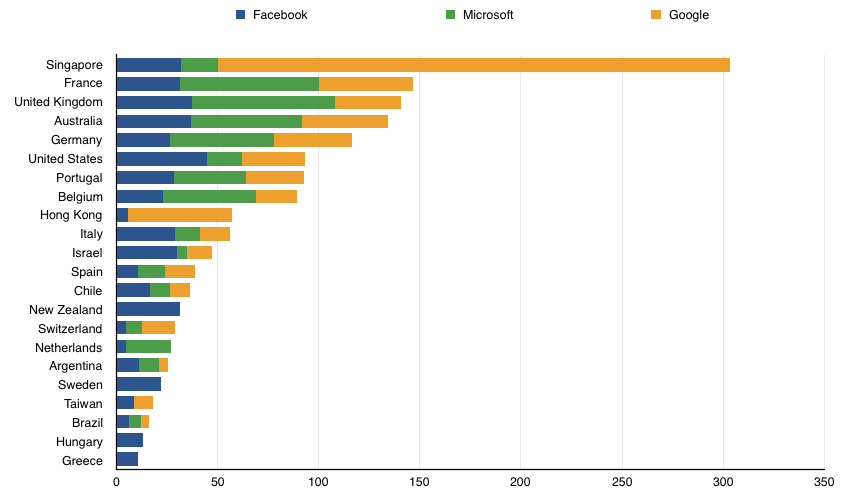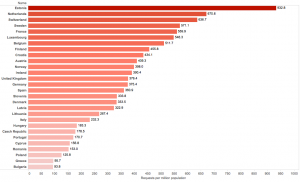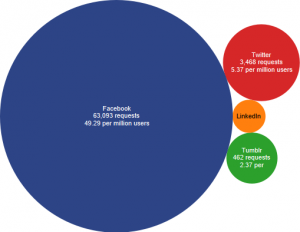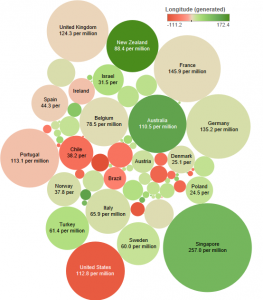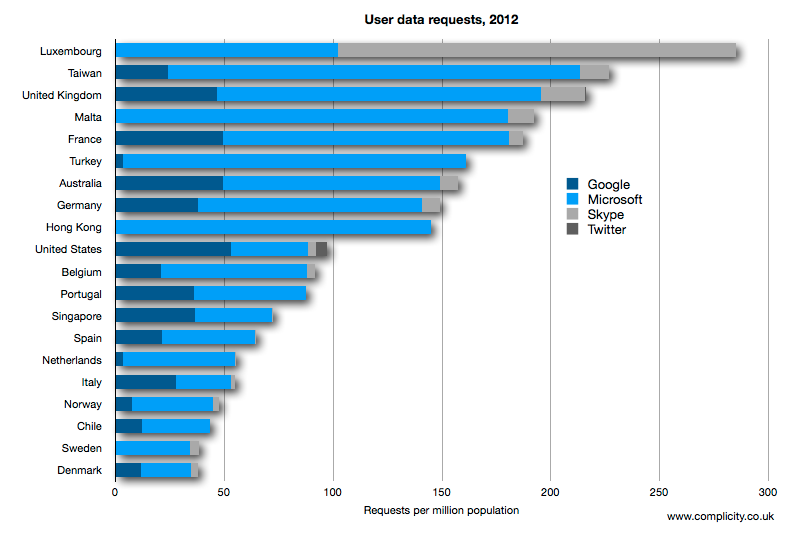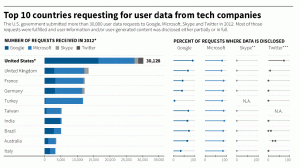Ahead of the publication of the latest incarnation of the Communications Data Bill, due out tomorrow, I thought I’d take another look at how the UK compares with other countries when it comes to the number of requests for user data. There are many articles that quote the raw numbers and the US invariably comes out top in those terms – with a population of well over three hundred million people, that’s hardly surprising.
Instead, I look at the number of requests per million population – i.e, as a citizen how likely is it that someone such as the courts or police will be looking at my data. The UK has an unenviable record in this regard, topping the charts as the most-spied on population back in 2010. The UK remained top in Europe until the latter half of 2012, when France just managed to get ahead – a trend that was repeated in 2013.
Since then, more data has been made available. Originally, only Google produced data but many other companies have followed suit. The big three who publish useful data, in terms of requests received, are Google, (Including Google Plus) Microsoft (Including Skype) and Facebook. Below is the chart for the latter half of 2014, which is the latest period for which full data is available. France and the UK are still neck-and-neck on user data requests per million population, beaten only by Singapore’s recent obsession with collecting data from Google.
